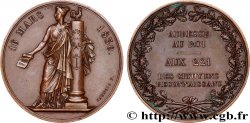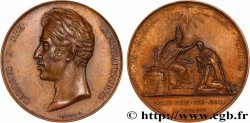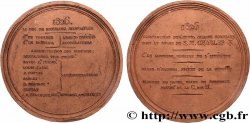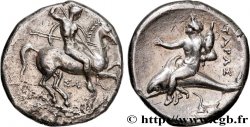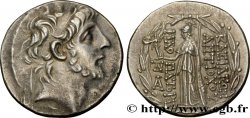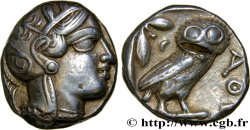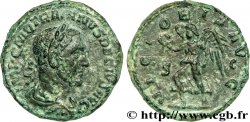Live auction - fme_895919 - CARLO X Médaille, Conseil d’État, Joseph Jérôme, comte Siméon
Devi Sign-in ed essere un offerente approvato fare un'offerta, Login per fare offerte. Conti sono soggetti ad approvazione e di approvazione sono raggiunti entro 48 ore. Non aspettare fino al giorno di una vendita si chiude per registrarti.Confermando la tua offerta su questo oggetto ti impegni ad un contratto legalmente vincolante per l'acquisto di questo prodotto e fare clic su «offerta» costituisce accettazione dei termini di utilizzo de live auctions cgb.fr.
Offerta deve essere collocato in euro gli importi interi vendita only.The si chiuderà al momento sulla descrizione dell'oggetto, eventuali offerte pervenute al sito dopo l'orario di chiusura non verranno eseguite. Volte transmition possono variare e le offerte potrebbero essere respinto se si attende per gli ultimi secondi. Per ulteriori informazioni ckeck le FAQ Live auction.
Le offerte vincenti saranno sottomesse ai 18% per spese di compartecipazione alla vendita.
Le offerte vincenti saranno sottomesse ai 18% per spese di compartecipazione alla vendita.
| Valutazione : | 200 € |
| Prezzo : | 450 € |
| Offerta maxima : | 450 € |
| Data di fine vendita : | 13 febbraio 2024 17:01:11 |
| partecipanti : | 4 partecipanti |
Tipo : Médaille, Conseil d’État, Joseph Jérôme, comte Siméon
Data: n.d.
Metallo : argento
Diametro : 41 mm
Asse di coniazione : 12 h.
Incisore MICHAUT Auguste-François (1786-1879)
Peso : 41,47 g.
Orlo : lisse
Marchio : sans poinçon
Commenti sullo stato di conservazione:
Patine hétérogène, présentant des frottements dans les champs. Présence de quelques rayures. Beaux reliefs au revers. Quelques petits coups sur la tranche
Diritto
Titolatura diritto : CHARLES X - ROI DE FRANCE..
Descrittivo diritto : Tête nue de profil à droite, signé : MICHAUT..
Rovescio
Titolatura rovescio : CONSEIL D’ETAT / - / LE BARON / SIMEON.
Descrittivo rovescio : Légende en 3 lignes dans une couronne de chêne, sommée d’une couronne. Signé : BARRE.
Commento
La médaille a été remise à Joseph Jérôme, comte Siméon (1749-1842). Né à Aix-en-Provence, il deviendra professeur de droit à l’université d’Aix-en-Provence en 1778, assesseur de Provence en 1783, il perd sa chaire sous la Révolution et prend part au mouvement fédéraliste du Midi en 1793.
D’abord réfugié en Italie, puis de retour à Marseille, il sera député au Conseil des Cinq-Cents en 1795. Condamné à la déportation puis prisonnier, il sera libéré lors du coup d'État du 18 brumaire. Refusant sa nomination de préfet de la Marne, il sera nommé tribun et prend part à la préparation du Code civil. Conseiller d'État (1804), il devient membre du conseil de régence en 1807 puis ministre de l'Intérieur et président du Conseil d'État du roi Jérôme de Westphalie.
Il sera ensuite préfet du Nord (1814-1815), il siège aussi à le Chambre des représentants des Cent-Jours, puis à la « Chambre introuvable » à la Seconde Restauration et reprend place au Conseil d’État en 1815. Il sera également ministre de l’Intérieur (1820-1821), pair de France à partir de 1821 et sera le premier président de la Cour des comptes (1837-1839).
The medal was awarded to Joseph Jérôme, Count Siméon (1749-1842). Born in Aix-en-Provence, he became a professor of law at the University of Aix-en-Provence in 1778, assessor of Provence in 1783, he lost his chair during the Revolution and took part in the federalist movement of the South in 1793. First a refugee in Italy, then returning to Marseille, he was a deputy in the Council of Five Hundred in 1795. Sentenced to deportation then prisoner, he was freed during the coup d'état of 18 Brumaire. Refusing his appointment as prefect of the Marne, he was appointed tribune and took part in the preparation of the Civil Code. Councilor of State (1804), he became a member of the Regency Council in 1807 then Minister of the Interior and President of the Council of State of King Jerome of Westphalia. He was then Prefect of the North (1814-1815), he also sat in the Chamber of Representatives of the Hundred Days, then in the \\\"Introuvable Chamber\\\" during the Second Restoration and took his place again in the Council of State in 1815. He was also Minister of the Interior (1820-1821), Peer of France from 1821 and was the first President of the Court of Auditors (1837-1839)
D’abord réfugié en Italie, puis de retour à Marseille, il sera député au Conseil des Cinq-Cents en 1795. Condamné à la déportation puis prisonnier, il sera libéré lors du coup d'État du 18 brumaire. Refusant sa nomination de préfet de la Marne, il sera nommé tribun et prend part à la préparation du Code civil. Conseiller d'État (1804), il devient membre du conseil de régence en 1807 puis ministre de l'Intérieur et président du Conseil d'État du roi Jérôme de Westphalie.
Il sera ensuite préfet du Nord (1814-1815), il siège aussi à le Chambre des représentants des Cent-Jours, puis à la « Chambre introuvable » à la Seconde Restauration et reprend place au Conseil d’État en 1815. Il sera également ministre de l’Intérieur (1820-1821), pair de France à partir de 1821 et sera le premier président de la Cour des comptes (1837-1839).
The medal was awarded to Joseph Jérôme, Count Siméon (1749-1842). Born in Aix-en-Provence, he became a professor of law at the University of Aix-en-Provence in 1778, assessor of Provence in 1783, he lost his chair during the Revolution and took part in the federalist movement of the South in 1793. First a refugee in Italy, then returning to Marseille, he was a deputy in the Council of Five Hundred in 1795. Sentenced to deportation then prisoner, he was freed during the coup d'état of 18 Brumaire. Refusing his appointment as prefect of the Marne, he was appointed tribune and took part in the preparation of the Civil Code. Councilor of State (1804), he became a member of the Regency Council in 1807 then Minister of the Interior and President of the Council of State of King Jerome of Westphalia. He was then Prefect of the North (1814-1815), he also sat in the Chamber of Representatives of the Hundred Days, then in the \\\"Introuvable Chamber\\\" during the Second Restoration and took his place again in the Council of State in 1815. He was also Minister of the Interior (1820-1821), Peer of France from 1821 and was the first President of the Court of Auditors (1837-1839)







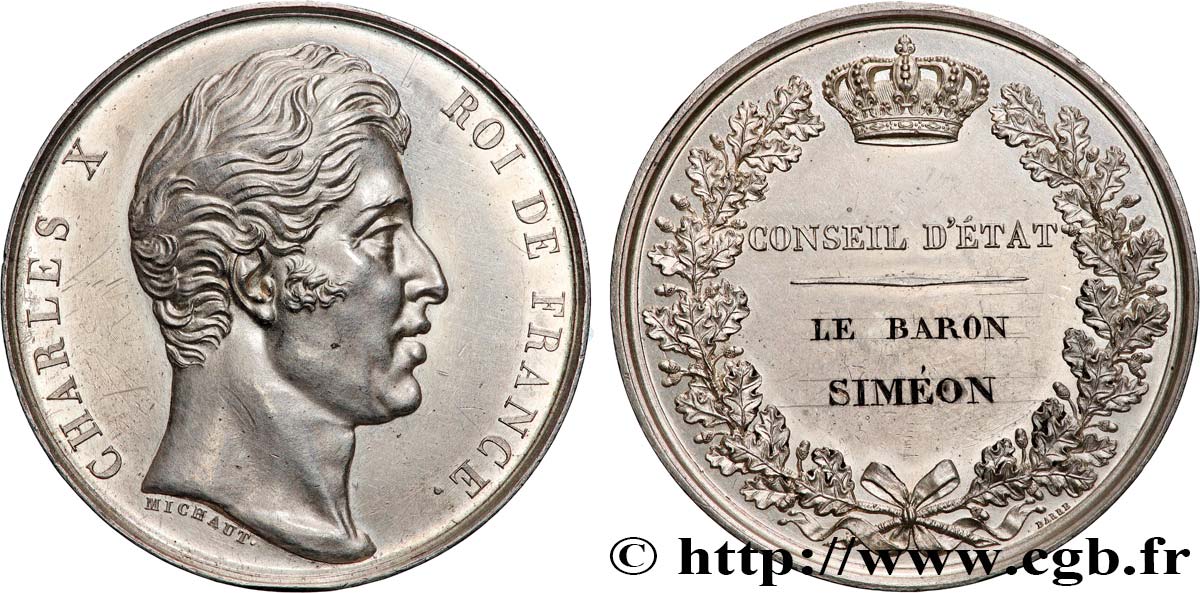
 Segnalare un errore
Segnalare un errore Stampate la pagina
Stampate la pagina Condividi mia selezione
Condividi mia selezione Fai una domanda
Fai una domanda Consegnare / vendere
Consegnare / vendere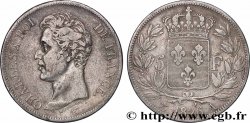
 Descrittivo
Descrittivo